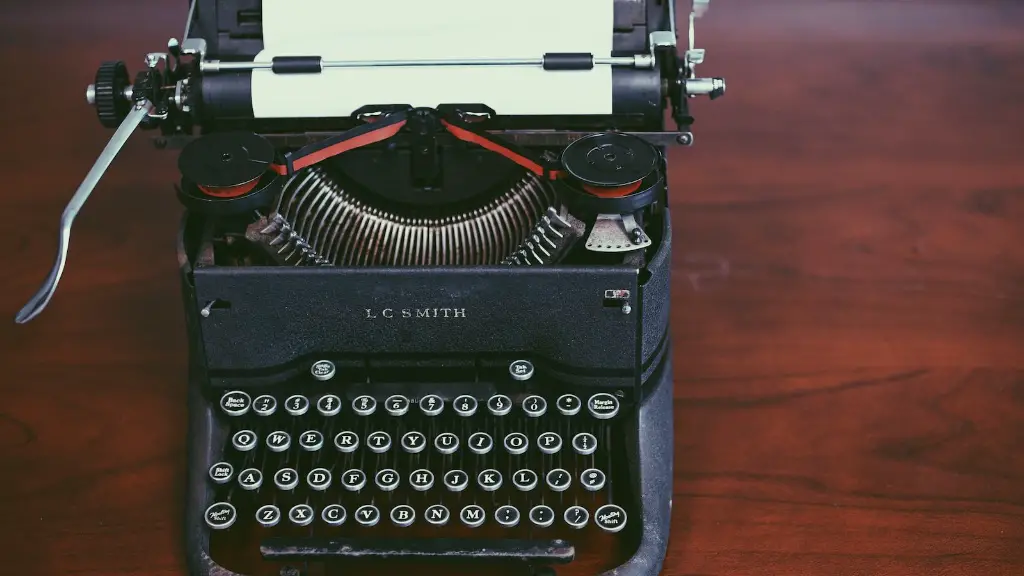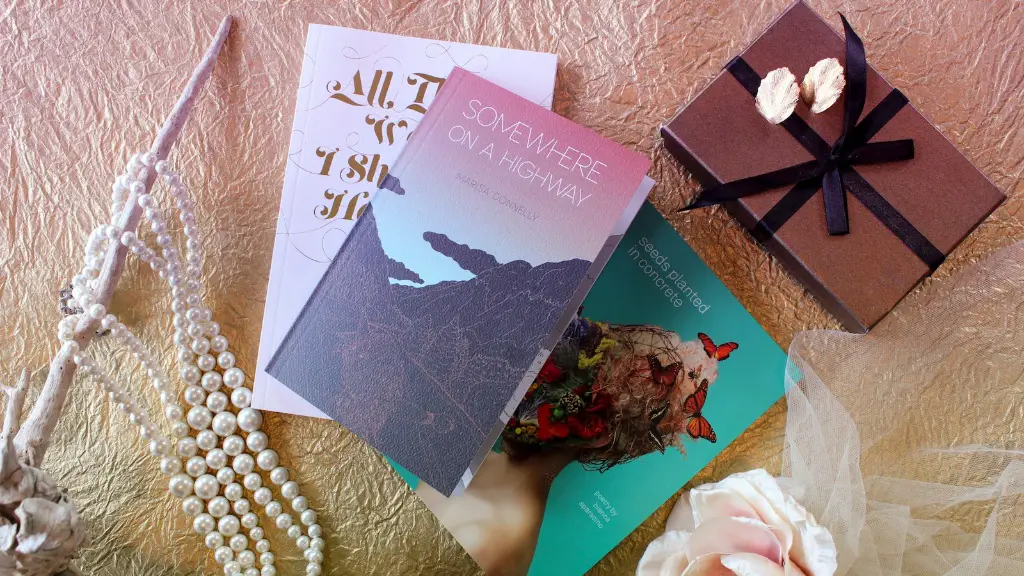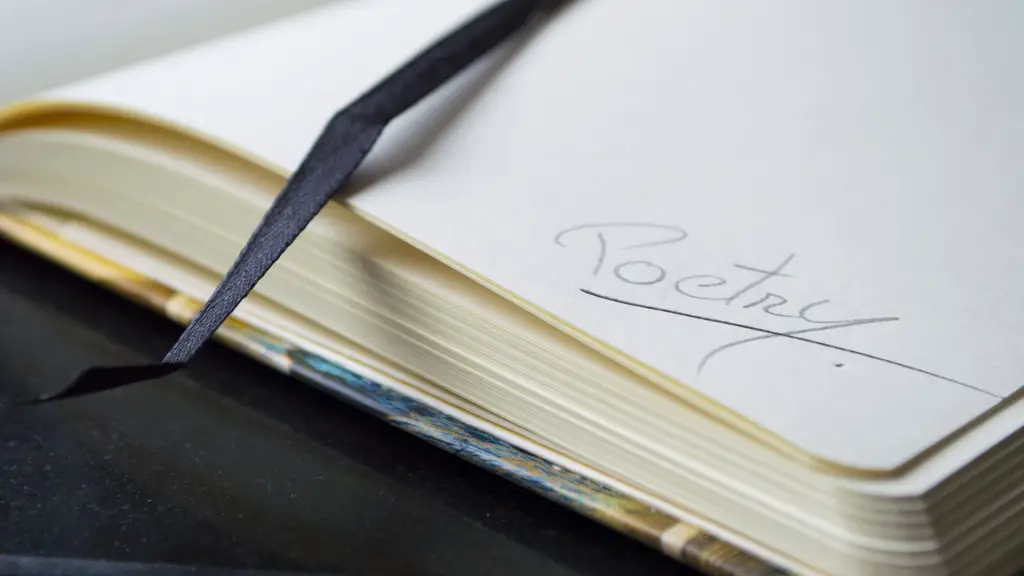Origins of Poetry
People have been reciting and writing down poetry for thousands of years, and its origins have been disputed ever since. While the exact beginnings of poetry remain unknown, most scholars agree that it likely started as an extension of oral tradition, using the tools of language for self-expression and communal celebration. Ancient civilizations such as the Sumerians and the Hebrews wrote poetry that was incredibly powerful and still influences our understanding of the art today.
Although many cultures crafted elaborate stories and epic poems, most of these were recited aloud, passed down orally through generations. These works were often accompanied by musical instruments and provided audiences with an emotional viewing experience that would rival today’s blockbuster movies. As these works passed through time, they evolved, and new poetic forms were added to the mix.
Classic Forms of Poetry
In the West, poetry has been shaped by classical forms that are still widely practiced today. Poems such as the epic, ode, sonnet, and ballad are all part of this timeless tradition. Many of these forms prioritize the use of meter, rhymes, and traditional poetic structure to give the author’s words a sense of order and pattern.
Each of these traditional forms has a unique purpose and can be used to express different types of emotions, thoughts, and ideas. For example, an epic poem features long, sweeping passages and often tells a story, while a sonnet typically focuses on a specific theme and has a tight, controlled structure.
Experimental Poetry
In addition to traditional forms of poetry, many contemporary writers focus on creating experimental works. These pieces often depart from traditional forms and techniques, centering instead on personal, often abstract, expression. Such works often contain elements of surprise and can feature anything from new rhythms, to word choice and structure.
Experimental poetry often tends to focus less on the strict meter and rhyme structures of other forms and more on representing ideas, thoughts, and feelings that are difficult to express in everyday language. By rejecting the traditional expectations of poetry, it can often lead to powerful, thought-provoking work.
Modern Poetry
Throughout the years, poetry has evolved and adapted to take on many different forms. Today, modern poets dispense with the rigid rules and structure of the past and use their art to explore a variety of topics. This can include relationships, politics, identity, and many more. Modern poetry also often combines elements of multiple creative forms, such as visual art, music, and theater, to create an immersive experience for readers.
The Power of Poetry
Poetry’s power to move, inspire, and motivate people is undeniable. Whether it’s a lighthearted haiku or a deeply moving sonnet, poetry’s ability to move us to action is unparalleled and its impact can still be felt centuries later.
Many of the world’s most famous poets are remembered not only for their writing, but also for the lasting effects their words have had. Poetry has been used to enact real-world change, both on a local and global level, helping to effect movements such as civil rights, feminism, and LGBTQ rights.
How Poetry Inspires
Poetry can create a sense of community and belonging by reminding individuals of our shared experience of life. When faced with difficult emotions, such as grief, sorrow, or joy, poetry can provide comfort, solace, and hope. Poets throughout the centuries have used their art to explore emotion and create a space for self-exploration and growth.
Poetry can also provide insight into our shared history and collective identity. Poems often contain subtle references to shared cultural understanding that allow a collective understanding to form. By exploring human relationships and challenging preconceived notions, poetry can empower people to look at their society in a new way.
How Technology is Changing Poetry
The evolution of technology has had a huge impact on the evolution of poetry. Social media networks, apps, and websites allow poets to share their work with a larger audience, connecting writers with readers across the globe. This has allowed poets to experiment with new forms, create unique multimedia experiences, and share their work almost instantaneously.
Thanks to technology, poetry has become more accessible, allowing a new generation of poets to explore their own identity and create powerful works. Technology has made it easier for poetry to reach people from all walks of life, allowing us to explore hidden truths about the human condition, and to find new ways to express them.
Poetry as a Form of Resistance
Throughout history, poetry has had a powerful role in speaking truth to power. Poetry has been used as a form of protest and a method of sparking change. From the Peace Corps movement in the US to protest songs in South Africa, poetry has been used to lift up the voices of the oppressed and create a platform for change.
Today, poets are continuing to use their works to challenge the status quo and unearth hidden truths. Poets are often the first to speak up against discrimination and challenge oppressive systems, helping to shape a fairer society. By exploring the human experience and challenging our expectations, poets can have a profound impact on our world.
Poetry as an Art Form
Poetry has long been used as a form of artistic expression. It has been used to express love, explore spiritual matters, and to challenge accepted beliefs. Poets often take abstract concepts and turn them into something tangible, allowing readers to explore something from a new angle.
The beauty of poetry is that it allows us to play with language, giving us a chance to explore new ideas and different perspectives. By using metaphors, allusions, and figurative language, poets can create a powerful sense of imagery and evoke emotion in their works.
The Paradoxical Nature of Poetry
Poetry can be a source of comfort and solace, but it can also disturb and challenge us. It can explore our greatest strengths and bring us to our knees. It can inspire us, educate us, and ask us to confront uncomfortable truths.
In many ways, poetry is paradoxical; it can both lift us up while at the same time make us feel heavy. But it also has the power to open our eyes to new experiences, as well as help us to confront the world around us and our place within it.


